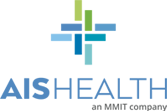Radar on Drug Benefits
-
Analysis Tallies Premium Impact of Provider Markups on Specialty Drugs
If providers charged the same price as specialty pharmacies for specialty medications, $13.1 billion in spending on health insurance premiums and premium equivalents could have been avoided in 2024, according to a new analysis from the consulting firm Oliver Wyman, commissioned by AHIP.
Provider-administered drugs can be delivered directly to clinicians from specialty pharmacies — known as white bagging — or providers can purchase the drugs directly and store the drugs until they are needed for patient care, which is called “buy and bill.” When the “buy and bill” method is utilized, the providers can charge a markup for the drug that is passed through to the patient’s bill.

-
News Briefs: CarelonRx Launches New Specialty Offering
CarelonRx, the PBM arm of Elevance Health, Inc., has a new “comprehensive approach to specialty medication savings across pharmacy and medical benefits,” according to an April 22 press release. The new product will use “advanced analytics” to “identify members whose health is at the greatest risk,” which will prompt “a thorough review of a member’s clinical diagnoses, medications, whole-health integrated support, and a review of their site of care options.” At that point, identified members will receive “proactive pharmacist-led outreach to address any barriers to care, and to further coordinate integrated care with their whole health team, including medical and behavioral health professionals.” Elevance recently announced a pending deal to acquire Kroger Inc.’s specialty pharmacy division as it grows its Carelon health services division.
Sen. Bernie Sanders (I-Vt.) said on April 24 that he has launched an investigation into the “outrageously high prices” that Novo Nordisk is charging for its popular treatments for weight loss and Type 2 diabetes, Wegovy and Ozempic. In a letter to the Danish drugmaker’s CEO, Sanders — who chairs the Senate’s Health, Education, Labor and Pensions Committee — noted that the list prices for Wegovy and Ozempic ($1,349 and $969 per month, respectively) are far higher than what the drugs can be purchased for in countries like Canada and Germany. In his letter, Sanders requested information about how Novo Nordisk determined the prices for Ozempic and Wegovy, what it spent on research and development, and more.

-
Wegovy’s New Indication Turns Up Heat on Employers Sweating GLP-1 Costs
When the FDA approved Novo Nordisk’s Wegovy (semaglutide) for reducing the risk of serious heart problems, it paved the way for Medicare Part D plans to cover the drug. Industry experts also predict that the drug’s expanded indication will pressure more commercial insurers and their plan-sponsor clients to cover the pricey — and increasingly popular — medication.
“The pressure is just going to be too much” for commercial plans to avoid broadening their GLP-1 coverage, says Debra Devereaux, principal and chief pharmacy/clinical officer at Rebellis Group. However, she cautions that there may not be many significant coverage-policy changes this year.
Many commercial health plans already cover the drug for weight loss. Data from MMIT, AIS Health’s parent company, show that in 31 states, pharmacy formularies that cover more than half of commercial-plan enrollees categorize Wegovy as “preferred” or “preferred with utilization management restrictions.”

-
Big Three PBMs Cover Opill With $0 Cost Sharing for Most Commercial Plans
The Big Three PBMs — UnitedHealth Group’s Optum Rx, CVS Health Corp.’s Caremark, and The Cigna Group’s Express Scripts — have opted to cover Perrigo Co.’s over-the-counter birth control pill, Opill (norgestrel), at no cost to members in most non-grandfathered commercial plans, according to one expert. That suggests they are taking proactive steps to comply with potential rulemaking that could require most health plans to cover Opill and other types of over-the-counter birth control without cost sharing.
“There has been pretty broad, in the industry, adoption of Opill to the ACA preventive list,” Cody Midlam, Pharm.D., tells AIS Health, a division of MMIT. Midlam is a director at the benefits consulting firm WTW. “If a drug is on that list, that is generally available at $0 cost share at the point of sale for members.”

-
New Mexico Law Reduces Drug Spending for Mental Health, SUD Patients
A 2022 New Mexico law eliminating in-network mental health and substance use disorder (SUD) treatment copayments, coinsurances and deductibles in plans regulated by the state led to a significant decline in out-of-pocket spending for prescriptions treating those conditions, according to a recent JAMA Health Forum study. However, early results showed that the number of prescriptions dispensed did not change in the six months after New Mexico’s No Behavioral Cost-Sharing (NCS) rule went into effect.
Samantha J. Harris, Ph.D., one of the study’s authors, tells AIS Health that the NCS is “really groundbreaking” in that it’s the first state law to eliminate cost-sharing for mental health and SUD treatments. She adds that “as people are looking at the next frontier of mental health or health care financing, this is an exciting policy option,” although she notes that “it remains to be seen whether it’s going to impact utilization of services [and] whether this is going to improve overall health and well-being.”


The Latest
Meet Our Reporters
Meet Our Reporters


















